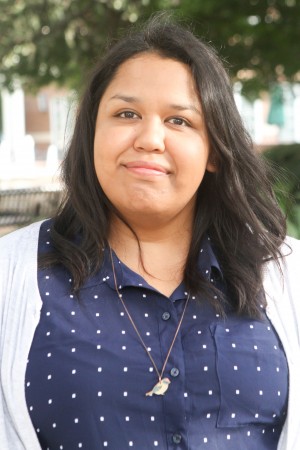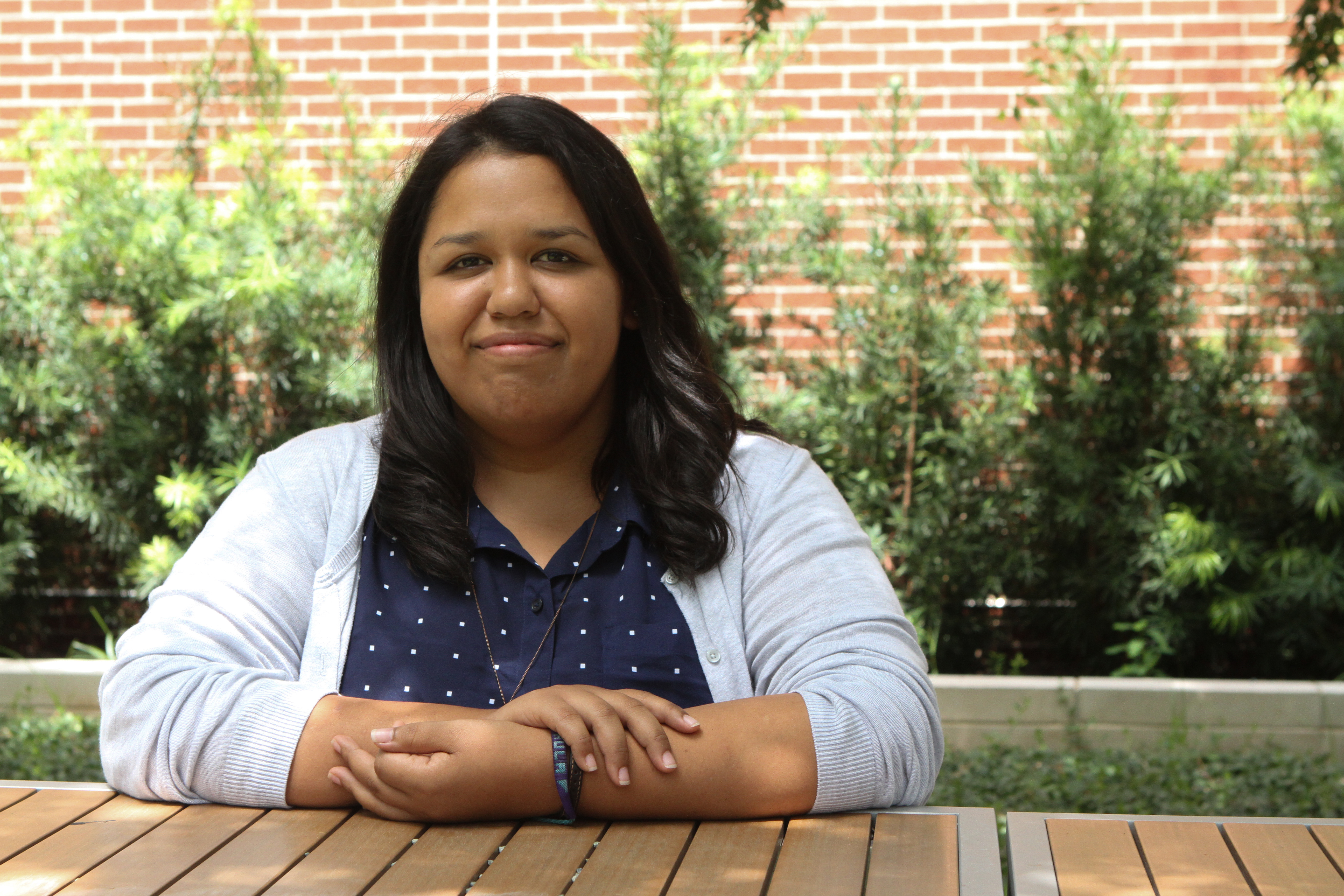
City Editor
I’m embarrassed to say this, but Spanish is not my first language.
This might not seem like something I should be embarrassed about. After all ,I live in America where English is the popular language on television, in our government and in our school system.
Moreover, as an aspiring journalist it is important that I have a stronger command of the English language as I plan to work for an English-first publication. But, as a Mexican-American, the Spanish language is part of my culture.
Outside of work and school, my less than perfect command of Spanish makes me sick to my stomach because I know that if I don’t use accents in just the right way around language elitists, I’ll be looked down upon for not staying true to my roots.
It’s hard to keep one foot in this country and the other in Mexico, trying to satisfy everyone around me, which is why Navajo Nation presidential hopeful Chris Deschene is someone I relate to in several ways.
Deschene is chasing a dream to lead the Navajo Nation out of economic turmoil and help the people who are more than constituents to him – they’re his family.
But despite being a Marine Corps veteran, a lawyer, former member of Arizona’s House of Representatives and a trained engineer, some people think he might not be leader material because of one thing – he doesn’t speak the Navajo language fluently.
According to Navajo law, the leader of the tribe must speak their native language fluently.
While I certainly have no aspirations of becoming Mexico’s next president, nor could I because I don’t have dual citizenship, I can relate to Deschene nonetheless. There are instances where my participation in organizations and social circles is limited because I speak what is called TexMex instead of traditional Spanish.
It’s not a fun situation to be in, especially when you’re talking to people who speak English but choose to speak Spanish for the sole purpose of making you work harder to keep up in the conversation.
However, I have noticed that this tends to happen with my Spanish elders more often than with my peers. The same, I believe, may be happening to Deschene.
In the Navajo Nation, fluency in the native language is a requirement for any president. Deschene, who has admitted he is not a master of the language, managed to finish second in the primary elections, with 9,831 votes, while former president Joe Shirley Jr., finished first with 11,052 votes.
But now, Deschene’s primary competitors are challenging his progress to the final voting process because of his language deficiency.
Deschene has refused to take a fluency test, saying it’s discriminatory. As an alternative, he took part in a deposition Monday where he was questioned in the Navajo language.
From this, it will be decided if Deschene can officially be on the general election ballot Nov. 4.
If Deschene is not allowed to run for president, the Navajo Nation will have taken a great step backwards in history and forward into their increasing financial woes.
Based on my understanding of changes in the Navajo Nation, the new generation of Navajo people are similar to the new generation of Chicanos. Fewer first-generation and second-generation children speak the languages of their ancestors fluently.
I was raised by my great-grandmother who did not speak one word of English outside of “shut up,” which she picked up from me and my siblings. Despite her nightly prayers in Spanish and being told to read my Spanish Bible, I did not come out a fluent speaker.
Was this my fault or did I do too good a job assimilating to the environment around me?
Similarly, Deschene has said in past interviews that he was raised by elders who spoke the language fluently. However, he left the reservation for school and work and English became his dominant language.
So now the people of the Navajo Nation have a choice to make. Punish someone for expanding their horizons and bringing back knowledge to their tribe, or reward him and everyone he will lead by allowing him to impart his experience on a nation in dire need of a change in direction.
Culture is important and I would never say “forget about that old language.” The Navajo language should be preserved because it is beautiful and part of history.
But Navajo elders would do well to remember that the only people who can make sure the language lives on are the educators; don’t blame the students if the lessons were not imparted to them.
Paula Ann Solis is a senior journalism major from Houston. She is the city editor for the Lariat.





